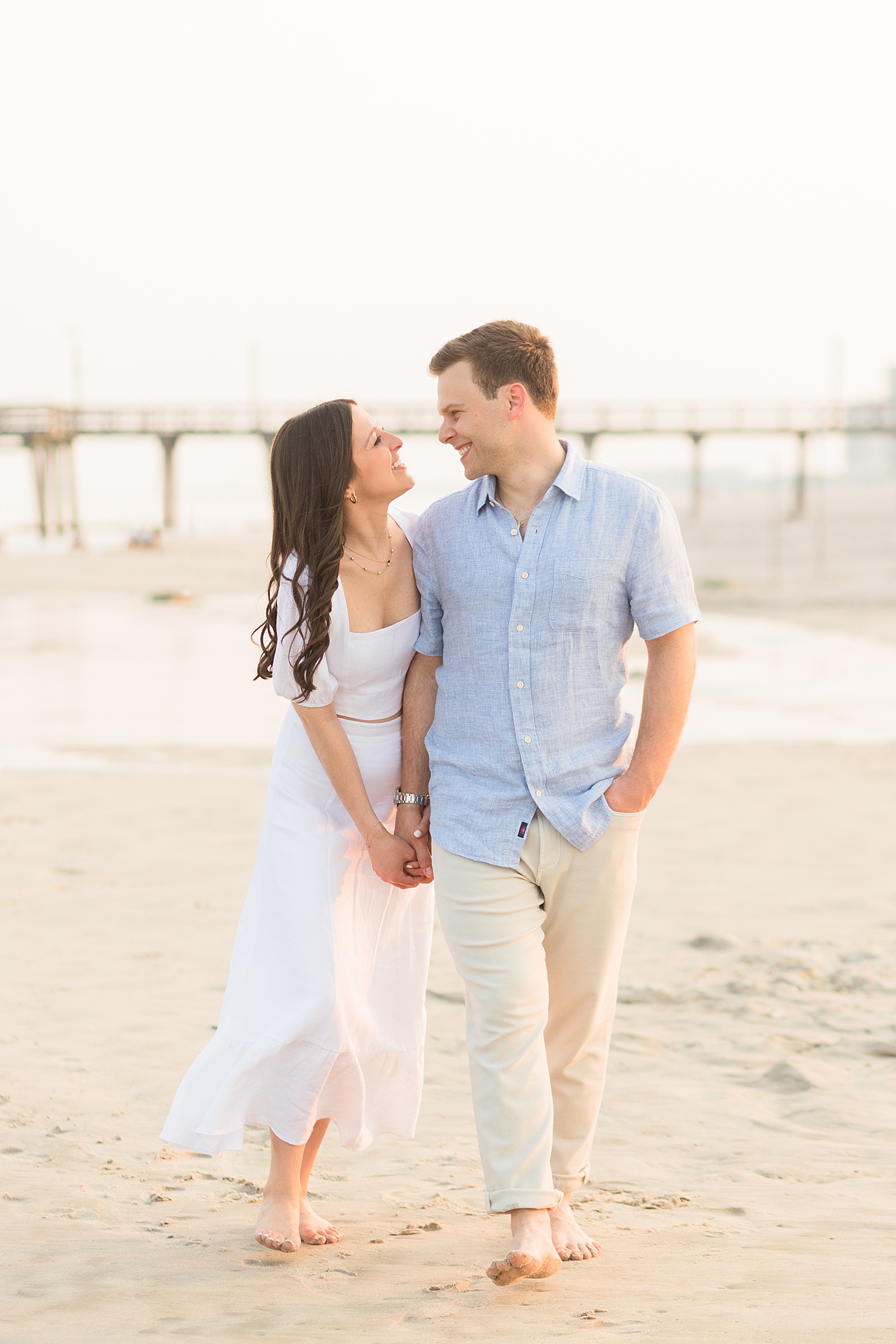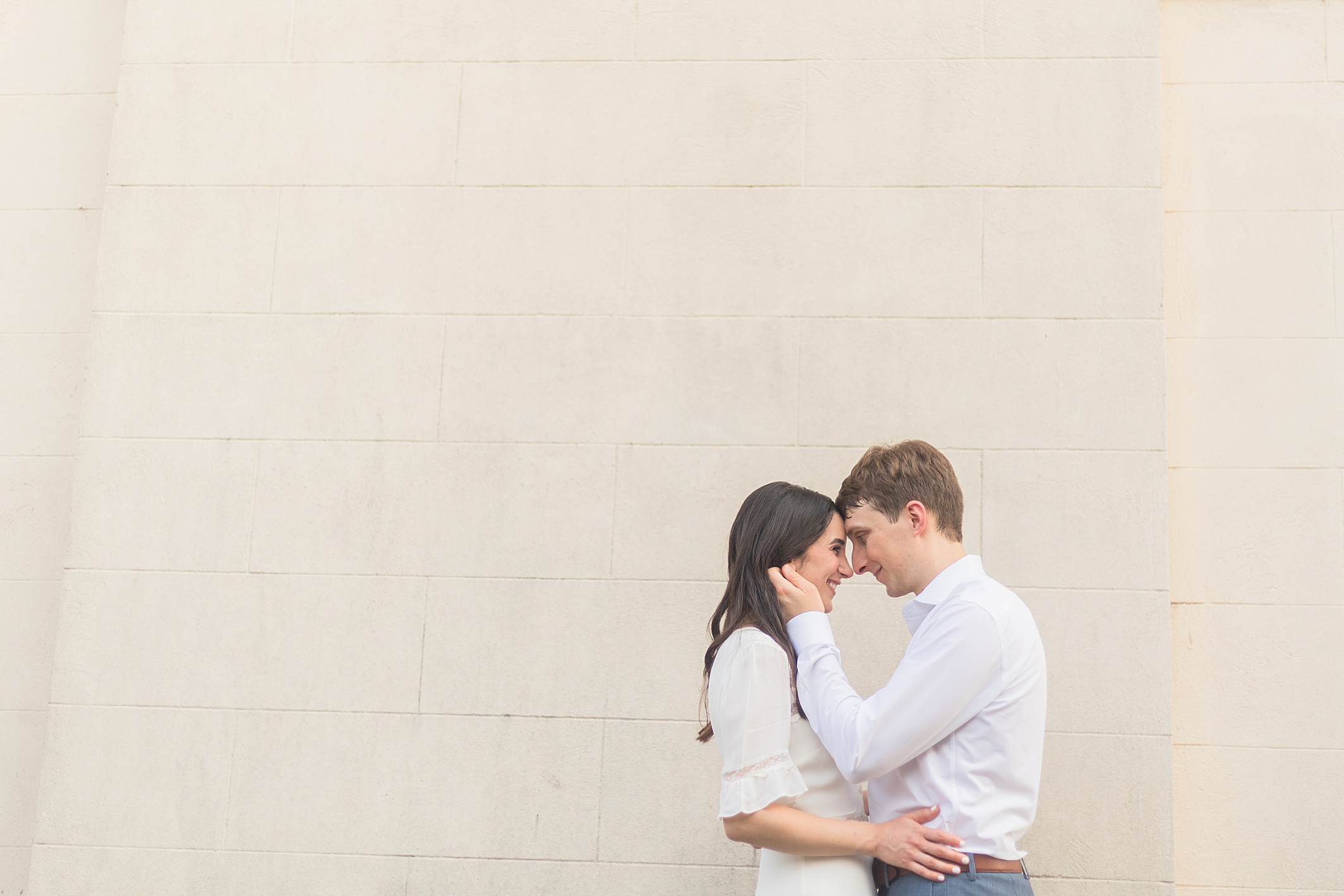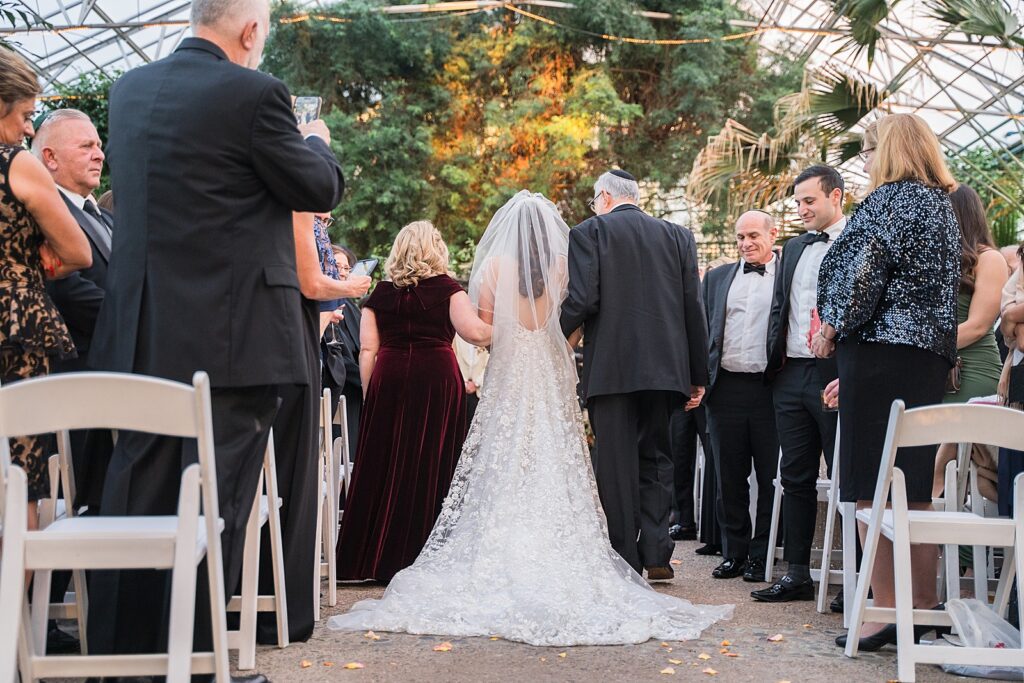
Planning a Jewish wedding is such a meaningful and emotional journey. It’s not just about the logistics, it’s about blending deep-rooted traditions with your own modern love story. And one of the most important decisions you’ll make is choosing the right photographer to capture it all.
As someone who has been photographing Jewish weddings for over a decade, I know how important it is to find a photographer who gets it. Someone who knows when to step back and let the moment unfold naturally, and when to step in and capture that fleeting, beautiful second that you’ll treasure forever.
Jewish weddings are fast-paced, emotional, and deeply sacred. And honestly, you don’t want to be explaining the difference between a Tisch and a Bedeken to your photographer, you want someone who already knows AND understands how it feels to be standing under the Chuppah for her own Jewish wedding.
I’ve had so many Jewish couples come to me with similar questions when they’re searching for the right photographer. That’s why I put together this post. I wanted to give you 150% honest answers and help you feel more confident when making this decision. So let’s dive into some of the biggest questions Jewish couples have about wedding photography.

1. Why Is It Important to Hire a Photographer Who Specializes in Jewish Weddings?
Jewish weddings aren’t like any other weddings and that’s part of what makes them so beautiful. From the Tisch and Bedeken to the Hora, there’s a flow and rhythm to Jewish weddings that’s different from any other type of wedding.
For example, the Tisch (where the groom gathers with his friends and family to sign the ketubah and celebrate) and the Bride sitting on her “thrown” waiting for the Bedeken (where the groom veils the bride) often happen simultaneously. That means you need a photographer who’s prepared to capture both, who is fully aware and experienced in the complete chaos that is the Bedeken and who knows exactly where to stand and where to look when the Bedeken is happening.
Then there’s the chuppah ceremony , the circling, the Sheva Brachot (Seven Blessings), the breaking of the glass, the ring and ketubah exchange, each part has its own deep significance. A photographer who understands these traditions will anticipate these moments without needing to be guided. They’ll know where to stand, what lens to use, and how to capture the emotion of the moment without being intrusive.
Jewish weddings also tend to move fast, once the dancing starts, the energy in the room is electric. If your photographer isn’t familiar with this pace, they might miss the action entirely. If the photographer doesn’t know how to jump right into the craziness, they might miss some really incredible moments.
I always tell my couples that hiring someone who truly understands Jewish weddings means you can talk the lingo, relax and focus on the moment, knowing that every meaningful detail is being documented and your photographer knows exactly what is coming next.

2. Do We Need Two Photographers for a Jewish Wedding?
I’m going to be totally honest, for Jewish weddings, having two photographers is almost always a good idea. Here’s why:
- Jewish weddings have a lot of moving parts. The groom’s Tisch is usually in a completely different part of the venue than where the cocktail hour and bride is seated, so having two photographers ensures both sides of the story are covered fully!
- I also find that having two photographers for a Jewish ceremony is absolutely key! 95% of the time, I like to be right by the Chuppah, getting all of the action that is happening underneath the Chuppah and having a second photographer down the aisle, capturing wide angles, action shots from a far, and guest reactions! It allows me to really concentrate on the emotion, love and personalities under the Chuppah, while still not missing any of the epic wide shots.
- During the Jewish dancing, it’s absolute joyful chaos, and you’ll want someone capturing the wide shots of the whole dance floor while someone else is zoomed in on your face as you’re being lifted into the air.
- If you’re having an Orthodox wedding where there’s separate dancing, it’s essential to have a photographer on each side to capture the full experience. We don’t want any awesome dance move or important moment missed!
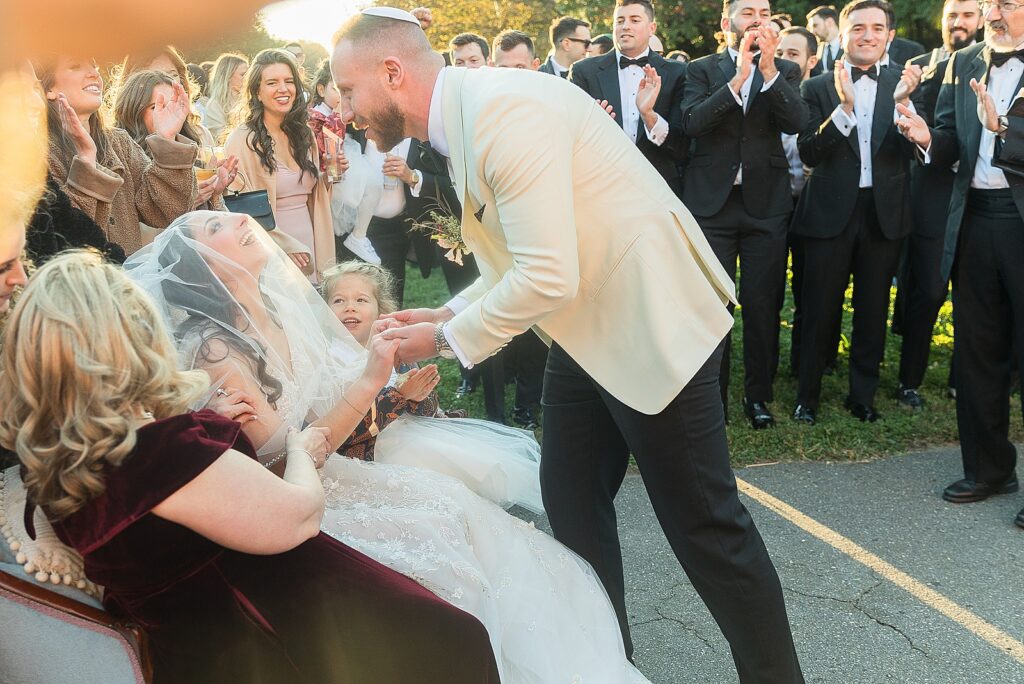
3. What Are the Key Moments a Jewish Wedding Photographer Should Capture?
Every wedding is different, but for Jewish weddings, there are certain moments that are absolutely essential to document:
The Tisch – The groom (and in more modern weddings, the bride as well) surrounded by his friends and family, the energy building as the ketubah is being signed.
The Bedeken – That emotional moment when the groom sees his bride and veils her. I also find this moment really feels like a community affair. It’s not just a couple celebrating and participating, but the entire community celebrating and participating.
Walking Down the Aisle – The tradition of being escorted by your parents is such a powerful moment.
Under the Chuppah – The circling, the vows, the blessings — this is the heart of the ceremony.
Breaking the Glass – The triumphant moment followed by song and dance!
The Hora – The sheer joy of being lifted into the air while everyone dances around you.
Family Portraits – Jewish weddings are about family and legacy — you’ll treasure these photos for generations.
Reception and Dancing – The speeches, the wild energy of the shtick and the epic dance moves, these are the moments you’ll want to relive over and over.
A photographer who knows Jewish weddings will be in the right place at the right time for every single one of these moments, without needing to be told.
Trust me when I say, it makes your life a lot easier on your wedding day.
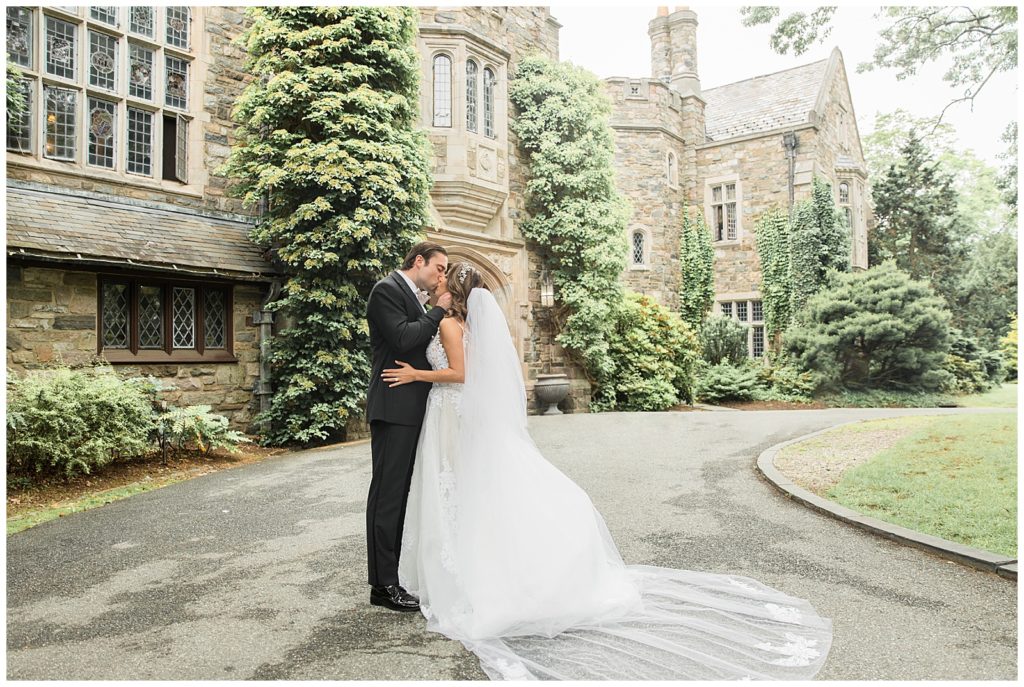
4. How Do We Incorporate Jewish Traditions Into Our Wedding Photos?
One of my favorite things about photographing Jewish weddings is how meaningful and personal the traditions are. I always tell my couples: if it’s meaningful to you, it means something to me so let’s capture it.
Some of my favorite ways to incorporate Jewish traditions into wedding photos:
- Holding the ketubah during portraits
- Capturing the emotional exchange of rings under the chuppah
- Photographing the groom’s tallit draped over the couple during the ceremony
- Showcasing the breaking of the glass from different angles
- Family heirlooms — like your grandmother’s kiddush cup or your grandfather’s tallit — woven into the details
The key is to tell your story, not just recreate what other couples have done.
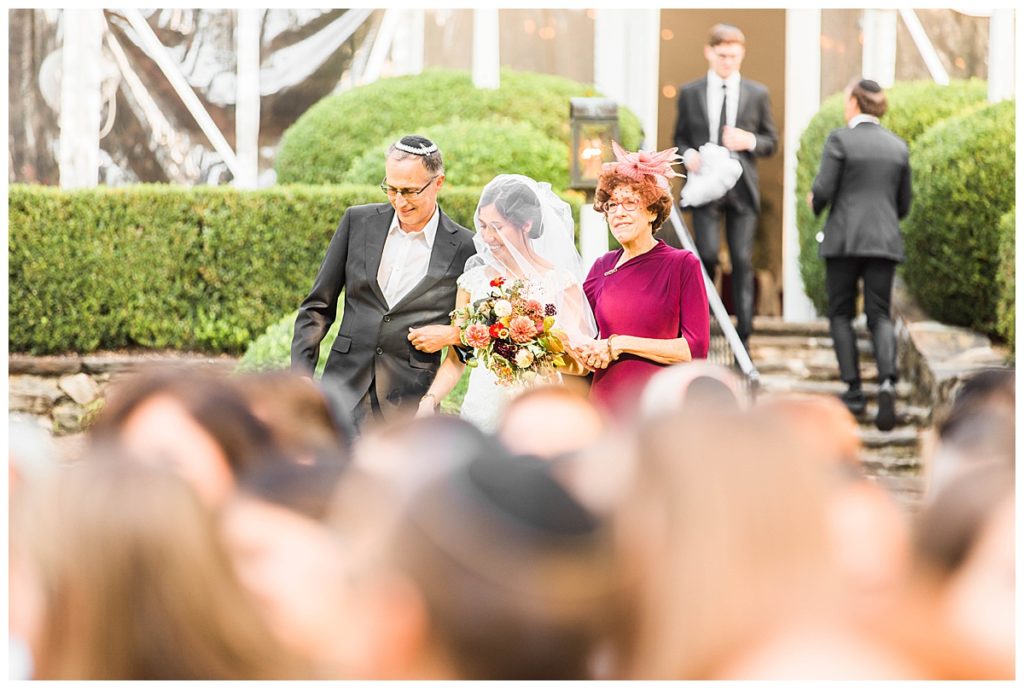
5. What’s the Best Way to Schedule Photos Around the Ceremony and Reception?
Timing a Jewish wedding can be tricky, but it all comes down to good communication and a solid plan. Here’s how I typically recommend scheduling the photography:
At the end of the day, you don’t get a second chance to capture these moments, so having that extra set of eyes makes all the difference.
First Look: If you’re doing a first look, it’s best to schedule it about 2.5 hours before the ceremony. This gives you time for couple portraits, wedding party photos, and family shots before the ceremony starts.
Family Portraits: If you don’t have time before the ceremony, set aside 20–30 minutes immediately after the ceremony for family portraits. This ensures everyone is still gathered and looking their best.
Golden Hour: If your wedding is in the late afternoon or early evening, carving out 10–15 minutes during golden hour (the hour before sunset) can give you the most beautiful, soft light for romantic couple portraits.
If your wedding is on a Saturday evening after Shabbat, you may need to adjust the timing slightly to respect Shabbat restrictions. An experienced Jewish wedding photographer will know how to work within these guidelines while still capturing everything beautifully.
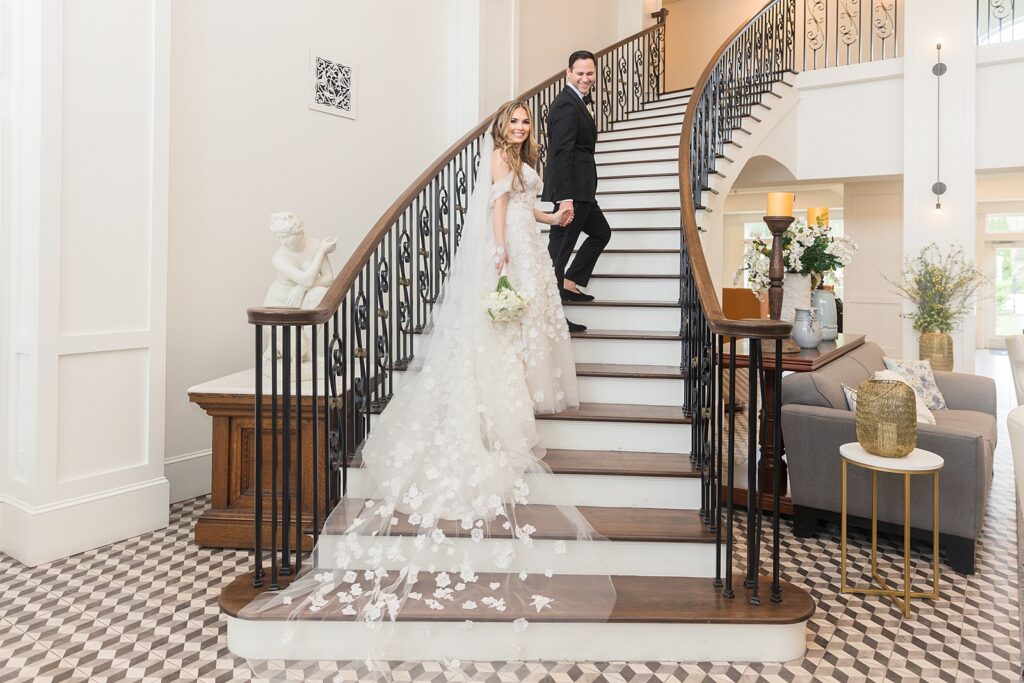
6. How Far in Advance Should We Book Our Photographer?
Most Jewish couples book their wedding photographer 6 – 12 months before their wedding date. While some couples plan further out (especially for popular dates in the spring and fall), this is more than enough time to secure a photographer who specializes in Jewish weddings.
That said, if you’re getting married during a busy season or on a holiday weekend, it’s always a good idea to reach out as soon as you have your date locked in. And if your wedding is coming up sooner than that, don’t panic! I’ve had couples book me just a week before their wedding, and we made it work beautifully. The key is to reach out early, communicate your needs, and find someone who understands the unique flow of a Jewish wedding.
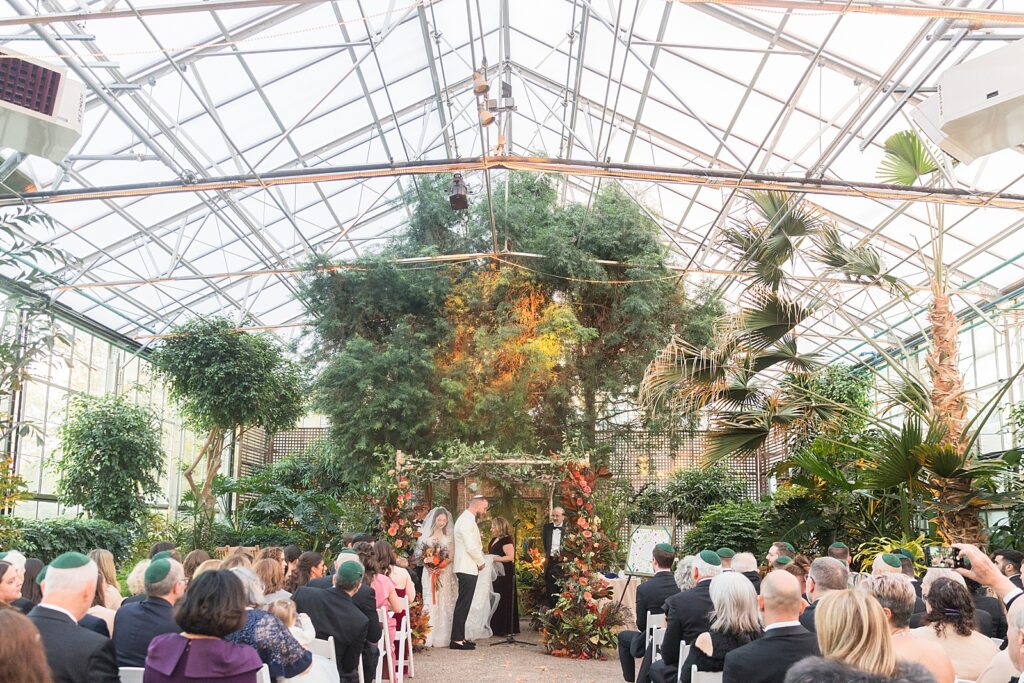
7. How Do We Find a Jewish Wedding Photographer Who Understands Our Traditions?
My advice: ask direct questions. Here’s what you want to know:
- Have you photographed Jewish weddings before?
- Are you familiar with Orthodox, Conservative, and Reform traditions?
- Can you capture the Tisch and Bedeken at the same time?
- Do you understand the flow of a Jewish wedding ceremony?
- Are you up for the crazy chaos of Jewish dance floors?
A photographer who knows Jewish weddings will not only answer “yes” — they’ll probably light up with excitement at the thought of photographing your big day.
At the end of the day, your Jewish wedding is about more than just the ceremony, it’s about your love story, your heritage, and the people who are showing up to celebrate with you.
Choosing the right photographer means finding someone who not only knows how to work a camera but also knows and really feels why each moment matters. From the emotional walk down the aisle to the wild energy of the Bedekin, all the way to the The “Mezinka” or “broom dance”, you deserve to have someone who understands the heart behind it all.
If that sounds like the kind of photographer you’re looking for, what are you waiting for, let’s chat. I’d be honored to capture your day in a way that feels true to you and your story.


